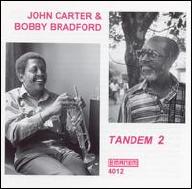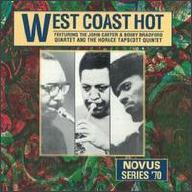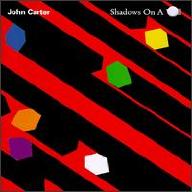In 1964, while living in Los Angeles, Carter formed the New Art Jazz Ensemble with trumpeter Bobby Bradford (who would also work with Coleman). The next year, he conducted a program of Coleman's music at U.C.L.A. In the late '60s, he played and recorded with pianist Horace Tapscott and saxophonist Arthur Blythe, among others. Carter switched to clarinet full-time in 1974. He recorded as a leader for the Flying Dutchman, Moers Music, and Revelation labels in the late '60s and early '70s.
In the '70s, Carter became an elder statesman to a group of young Los Angeles free jazz musicians who included multi-instrumentalist Vinny Golia. In 1983, Carter formed a school for improvisation called the Wind College with flutist James Newton, bassist/tubaist Red Callender, and saxophonist Charles Owens. Carter's activities in the '80s included participation in Clarinet Summit, a multi-generational, multi-stylistic quartet with David Murray, Alvin Baptiste, and Jimmy Hamilton; the group recorded for India Navigation and Black Saint. Carter's major focus during his last decade was, however, a five-part set of multi-movement compositions entitled Roots and Folklore: Episodes in the Development of American Folk Music. The first suite was recorded for Black Saint, the final four for Gramavision.
As a player, Carter comes very much out of the free jazz melodic tradition of Coleman, Bradford, and Dewey Redman. He navigated the notoriously difficult B-flat clarinet with extraordinary fluidity and a rare certainty of execution. Carter had a comprehensive technique and a prodigious imagination; in his compositions, Carter harnessed the looseness of collective improvisation without compromising spontaneity. ~ Chris Kelsey, Rovi















